BMW iX1 vs Fiat Scudo – Differences & prices compared
Compare performance, boot space, consumption and price in one view.
Find out now: which car is the better choice for you – BMW iX1 or Fiat Scudo?
The BMW iX1 (SUV) comes with a Electric engine and Automatic transmission. In comparison, the Fiat Scudo (Cargo Van) features a Diesel or Electric engine with Manuel or Automatic transmission.
When it comes to boot capacity, the BMW iX1 offers 490 L, while the Fiat Scudo provides – depending on how much space you need. If you’re looking for more power, decide whether the 313 HP of the BMW iX1 or the 177 HP of the Fiat Scudo suits your needs better.
In terms of consumption, the values are 15.80 kWh per 100 km for the BMW iX1, and 23.60 kWh6.60 L for the Fiat Scudo.
Price-wise, the BMW iX1 starts at 41800 £, while the Fiat Scudo is available from 29700 £. Compare all the details and find out which model fits your lifestyle best!
BMW iX1
The BMW iX1 stands out as a versatile addition to the electric vehicle market, seamlessly combining compact dimensions with advanced electric technology. Its sophisticated design elements and premium interiors ensure a luxurious driving experience, while the vehicle's performance focuses on delivering both efficiency and agility. With enhanced connectivity features and an emphasis on sustainability, this model represents a significant step forward in BMW's commitment to a greener future.
details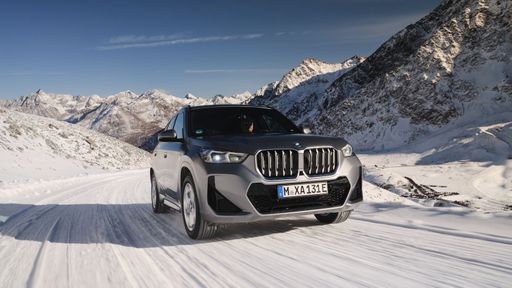 @ press.bmwgroup.com
@ press.bmwgroup.com
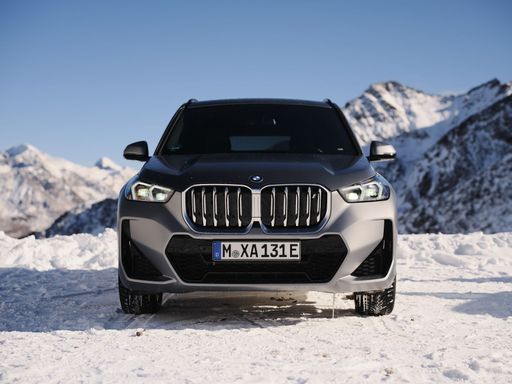 @ press.bmwgroup.com
@ press.bmwgroup.com
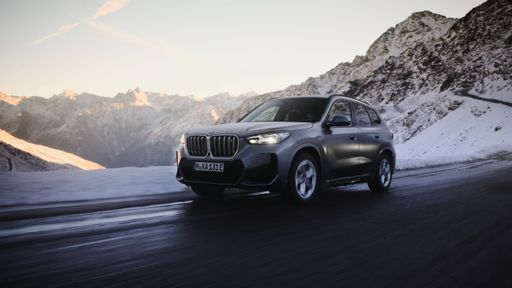 @ press.bmwgroup.com
@ press.bmwgroup.com
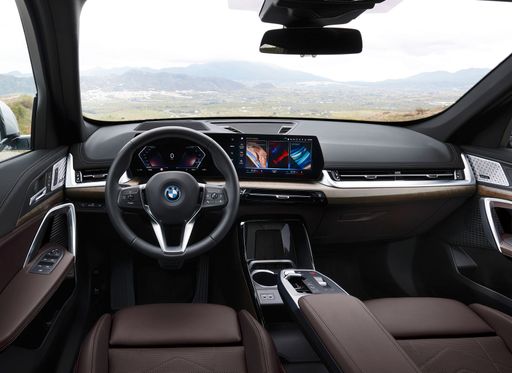 @ press.bmwgroup.com
@ press.bmwgroup.com
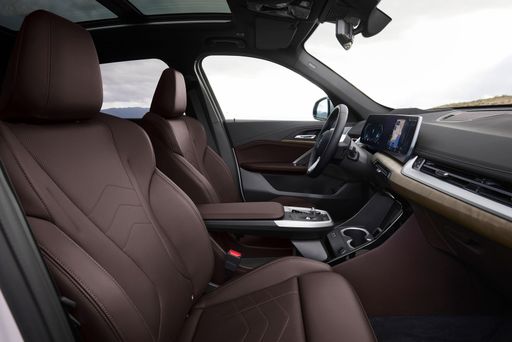 @ press.bmwgroup.com
@ press.bmwgroup.com
Fiat Scudo
The Fiat Scudo stands out as a versatile and practical choice for those in need of a reliable van, offering a blend of comfort and functionality. Its design is focused on meeting the demands of both urban and long-distance driving, ensuring a smooth and responsive experience. With a spacious interior and robust build, the Scudo is tailored for diverse professional needs, making it a valued asset for businesses and individuals alike.
details

|
|
|
|
|
Costs and Consumption |
|
|---|---|
|
Price
41800 - 54600 £
|
Price
29700 - 48100 £
|
|
Consumption L/100km
-
|
Consumption L/100km
6.6 - 7.4 L
|
|
Consumption kWh/100km
15.8 - 17.1 kWh
|
Consumption kWh/100km
23.6 - 24 kWh
|
|
Electric Range
436 - 463 km
|
Electric Range
221 - 352 km
|
|
Battery Capacity
64.80 kWh
|
Battery Capacity
-
|
|
co2
0 g/km
|
co2
0 - 194 g/km
|
|
Fuel tank capacity
-
|
Fuel tank capacity
69 L
|
Dimensions and Body |
|
|---|---|
|
Body Type
SUV
|
Body Type
Cargo Van
|
|
Seats
5
|
Seats
2 - 6
|
|
Doors
5
|
Doors
4
|
|
Curb weight
1940 - 2085 kg
|
Curb weight
1722 - 2260 kg
|
|
Trunk capacity
490 L
|
Trunk capacity
-
|
|
Length
4500 mm
|
Length
4980 - 5330 mm
|
|
Width
1845 mm
|
Width
1920 mm
|
|
Height
1616 mm
|
Height
1895 - 1935 mm
|
|
Payload
495 kg
|
Payload
840 - 1805 kg
|
Engine and Performance |
|
|---|---|
|
Engine Type
Electric
|
Engine Type
Diesel, Electric
|
|
Transmission
Automatic
|
Transmission
Manuel, Automatic
|
|
Transmission Detail
Reduction Gearbox
|
Transmission Detail
Manual Gearbox, Automatic Gearbox, Reduction Gearbox
|
|
Drive Type
Front-Wheel Drive, All-Wheel Drive
|
Drive Type
Front-Wheel Drive
|
|
Power HP
204 - 313 HP
|
Power HP
120 - 177 HP
|
|
Acceleration 0-100km/h
5.6 - 8.6 s
|
Acceleration 0-100km/h
10.5 - 11.2 s
|
|
Max Speed
170 - 180 km/h
|
Max Speed
130 - 185 km/h
|
|
Torque
250 - 494 Nm
|
Torque
260 - 400 Nm
|
|
Number of Cylinders
-
|
Number of Cylinders
4
|
|
Power kW
150 - 230 kW
|
Power kW
88 - 130 kW
|
|
Engine capacity
-
|
Engine capacity
1499 - 1997 cm3
|
General |
|
|---|---|
|
Model Year
2022 - 2023
|
Model Year
2024 - 2025
|
|
CO2 Efficiency Class
A
|
CO2 Efficiency Class
F, G, A
|
|
Brand
BMW
|
Brand
Fiat
|
BMW iX1
A New Era of Innovation: Meet the BMW iX1
The automotive world has seen a seismic shift towards sustainability and electrification, and BMW has solidified its place in this evolution with the introduction of the BMW iX1. As a fully electric SUV, the iX1 serves as a testament to how luxury, performance, and eco-consciousness can harmoniously blend in the modern automotive landscape.
Exquisite Design Meets Purposeful Engineering
The BMW iX1 is not just an electric vehicle; it's an embodiment of cutting-edge design and technology. With its bold SUV silhouette, the iX1 boasts dimensions of 4500 mm in length, 1845 mm in width, and 1616 mm in height, providing a spacious yet agile presence on the road. Its dynamic aesthetic is complemented by an aerodynamic form that enhances efficiency, offering a drag coefficient that rivals traditional SUV models.
Powertrain and Performance Specifications
Beneath the hood of the BMW iX1 lays an electric motor that signifies the future of automotive engineering. Available variants offer power outputs ranging from 204 to 313 PS (150 to 230 kW). The iX1 comes with either a front-wheel or all-wheel drivetrain, catering to different driving preferences. The xDrive30 variant, in particular, features all-wheel drive, delivering up to 313 PS for those who crave enhanced traction and control.
With a commendable electric consumption of 15.8 to 17.1 kWh per 100 km, the iX1 strikes a fine balance between power and efficiency. Its acceleration stats are equally impressive, with the ability to go from 0-100 km/h in as little as 5.6 seconds. This ensures that while it's eco-friendly, it does not compromise on the exhilaration factor. The vehicle can reach a top speed range between 170 and 180 km/h.
A Journey Without Interruptions: Range and Battery Life
The iX1's battery, boasting a capacity of 64.8 kWh, provides a substantial driving range of 436 to 463 km on a single charge, depending on the variant. This means long road trips are not only feasible but enjoyable, eliminating the range anxiety often associated with electric vehicles.
Comfort and Technological Interior
Inside, the iX1 exemplifies BMW’s commitment to luxury and innovation. It’s a five-seater SUV designed with comfort at its forefront, featuring advanced technological interfaces that enrich the driving experience. The spacious cabin offers 490 litres of boot space, ensuring practicality without sacrificing style.
In terms of monthly costs, owning an iX1 can range between €1,147 and €1,453, considering the zero-emission appeal with a CO2 efficiency class of A.
The Financial Aspect of Sustainability
With a price range from €48,400 to €63,140, the BMW iX1 isn't just a vehicle—it's an investment in sustainable motoring. Factoring in a cost of around 45.9 to 58.1 cents per kilometre, the iX1 offers an economically viable option for the eco-conscious driver.
Conclusion: The Future Is Now
The BMW iX1 stands as a beacon of what the future holds for zero-emission vehicles. With a melding of sustainability, performance, and luxury, it's not just a car, but a glimpse into the next chapter of automotive history.
Fiat Scudo
The Versatile Fiat Scudo: A Comprehensive Overview
The Fiat Scudo has long been a staple in the light commercial vehicle market, combining practicality with Italian flair. With its recent updates, the Scudo continues to impress, offering a range of configurations to suit various business needs. Whether you're looking for a reliable diesel workhorse or an eco-friendly electric option, the Scudo has you covered. Let's delve into the technical details and innovations that make the Fiat Scudo a standout choice.
Powertrain Options and Performance
The Fiat Scudo offers a diverse range of powertrains to cater to different user preferences and requirements. The diesel variants are equipped with the robust Multijet engines, available in 1.5-litre and 2.0-litre capacities. These engines produce between 100 - 180 PS, offering a balance between power and fuel efficiency, with consumption rates ranging from 6.5 to 7.8 L/100 km.
For those seeking greener alternatives, the E-Scudo provides two battery options: a 50 kWh and a 75 kWh version, both delivering an output of 136 PS. The electric models boast an impressive range of 218 to 321 km, depending on the battery size, making them an excellent choice for urban logistics while significantly reducing the carbon footprint.
Transmission and Drivetrain Technologies
The Fiat Scudo offers both manual and automatic transmission options, allowing drivers to choose based on their preferences and driving conditions. All models come with front-wheel drive, ensuring a stable and efficient distribution of power. The automatic gearbox in the diesel variants is particularly noteworthy for its smooth gear shifts and enhanced driver comfort, while the manual option provides more control for those who prefer a hands-on driving experience.
Innovative Features and Design
The Scudo is designed not only for utility but also comfort and ease of use. Its exterior dimensions range from 4609 to 5309 mm in length, offering substantial cargo space while maintaining a manageable size for city driving. The interior, available in several configurations, accommodates two to five seats, providing flexibility for transporting goods or passengers.
Innovative features include a modern infotainment system, ergonomic seating, and advanced safety technologies. The Scudo's cabin is equipped with intuitive controls and connectivity options, allowing drivers to maintain productivity and stay connected while on the move.
Economical and Environmental Considerations
The Fiat Scudo is designed with both performance and eco-friendliness in mind. The diesel engines are equipped with start-stop technology to reduce emissions and fuel consumption, achieving CO2 efficiency ratings ranging from F to A, depending on the model. This makes the Scudo not only an economical choice for businesses but also a responsible choice for the environment.
The electric E-Scudo takes eco-conscious driving to the next level, producing zero tailpipe emissions and offering various charging options to accommodate different usage patterns, making it suitable for both urban and suburban applications.
Conclusion
The Fiat Scudo stands out as a versatile and robust option in the light commercial vehicle market. With its diverse range of powertrains, including efficient diesel and innovative electric options, it caters to various business needs without compromising on performance or sustainability. The Scudo's well-thought-out design, coupled with its advanced features, make it a reliable partner for businesses looking to enhance their logistics operations.
Which drive types are available for the BMW iX1?
Available as Front-Wheel Drive or All-Wheel Drive.
The prices and data displayed are estimates based on German list prices and may vary by country. This information is not legally binding.
